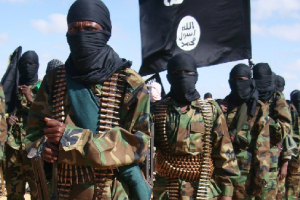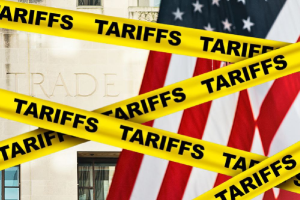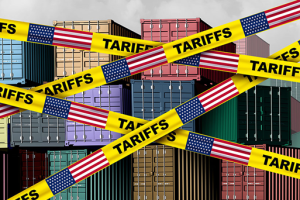
BY ADDISALEM MULAT
The Horn of Africa has seen a surge in the presence of various superpowers in recent times, which has sparked multiple discussions about what the future of the region holds. The changes happening now in the Horn of Africa are significant and are expected to have long term effects, which is why many powerful nations are keeping a close eye on developments in the area.
It is worth noting that each of these superpowers has a specific interest in the Horn of Africa. They have unique economic, military, and strategic objectives that they hope to achieve by increasing their presence in the region. Some may be interested in exploiting natural resources like oil and gas, while others may want to gain a foothold in the region for geopolitical reasons.
Whatever their motives may be, it is clear that the presence of these superpowers in the Horn of Africa is going to impact the region in a variety of ways. It could lead to increased tension, cooperation, or competition between the different powers. Ultimately, the future of the Horn of Africa remains uncertain, but it is certain that the region will continue to attract the attention of powerful nations for the foreseeable future.
The Horn of Africa is currently experiencing an increase in the number of superpowers presence in the region, which has caused many people to speculate about what this might mean for the future. It is evident that the shifts taking place now in the Horn of Africa are likely to have long-lasting effects, and they continue to draw the interest of influential nations worldwide. Each of these superpowers has specific motives for their presence in the area, with distinct economic, military, and strategic objectives that they seek to accomplish.
The presence of numerous superpowers in the Horn of Africa has stirred up extensive discussions among experts and scholars alike. They are all trying to determine how this will affect the region, be it positively or negatively. It is clear that the changes occurring now are significant and require careful analysis before any conclusions can be drawn. The strategies and actions of these superpowers will have a direct impact on the region’s political landscape, economy, and overall progress.
The interest of each superpower in the Horn of Africa is unique, based on its distinct history, culture, and national priorities. Moreover, they have different economic, military and strategic objectives that they intend to achieve in the region. These goals may include securing their resources, expanding their geopolitical influence, or developing robust trade relations. Consequently, the competition among superpowers in the region is fierce, and their actions will have long-term consequences on the Horn of Africa’s future.
The Horn of Africa is a region that has seen significant changes in recent times due to the presence of multiple superpowers. Each country’s interest in the region has led to various developments, particularly in terms of economic cooperation, trade, and diplomatic relations. The increased activity has also brought about an increase in aid and development projects, which have proven beneficial in alleviating some of the challenges faced by the area’s people.
With the superpowers’ investments in the region, there have been improvements in infrastructure, technology, and healthcare. This translates into a better quality of life for the people living in the area. Moreover, with the increased economic cooperation, businesses have been established, creating employment opportunities for the locals. Furthermore, with the attention brought by the superpowers, the Horn of Africa has received assistance from international organizations. With their support, programs and initiatives have been initiated to fight issues such as poverty, hunger, and disease. The heighted level of activity by superpowers in the Horn of Africa has brought much-needed attention to the area. With the continued support, the region can look forward to a brighter future, where the people will enjoy better living standards, improved access to basic necessities, and a more stable and secure environment.
In recent times, there have been numerous reports about the increased interest of several superpowers in the Horn of Africa. This has led to much speculation and discussion amongst many individuals as to what the future holds for this region. Many experts believe that these superpowers could potentially bring about significant changes, both positive and negative in nature. On one hand, some people view their involvement as an opportunity to improve the quality of life for those who reside in the area. They believe that the infusion of resources and expertise from these powerful countries could lead to improvements in infrastructure, healthcare, education, and other crucial areas.
On the other hand, others are more skeptical and warn of potential negative consequences. These warnings are based on the historical experiences of other regions, where superpower intervention has led to political instability, conflicts, and economic exploitation. Therefore, there is a need for caution and careful evaluation of the intentions and actions of these superpowers in the Horn of Africa. On one side of the argument are individuals who express concern that the heightened level of attention, focus and interest in the Horn of Africa may result in negative outcomes for the populations living in the region. There is a palpable sense of worry among some that the influence of these superpowers could be detrimental to the inhabitants of the Horn of Africa, given the historical context of exploitation and political interference by external actors in African countries.
There are those who hold a more optimistic view of the situation, recognizing that this increased involvement from global powers could potentially bring about positive change to the region. They argue that this could lead to greater investment, economic development and access to resources, ultimately improving the lives of those living in the Horn of Africa. Despite these differing perspectives, one thing is certain: the impact of these global superpowers will be felt in the Horn of Africa for years to come. It remains to be seen whether the changes that arise as a result of this involvement will have a positive or negative effect on the region and its inhabitants.
The impact of geopolitical influence on the Horn of Africa cannot be disregarded. Given that this region has been a strategically vital area since the ancient world, the involvement of powerful nations from different parts of the globe is not surprising. However, the consequences of their involvement can be damaging. It can lead to increased competition among power-seeking actors who may resort to violent means to achieve their desired outcome. This breeds conflict, which creates a toxic environment that could last for generations, causing untold anguish and pain to the citizens of these countries.
The geopolitical situation in the Horn of Africa could adversely affect the well-being of its people. The economic, political, and social turmoil that comes with increased competition for dominance could leave them vulnerable, without much agency to influence the outcome. Therefore, it’s essential to find ways to mitigate this by promoting peaceful resolutions to disputes and supporting regional stabilization initiatives aimed at fostering human development, security, and prosperity.
The Horn of Africa is facing various obstacles as a result of foreign goods, services, and investments entering the region. These external factors could potentially destabilize local industries, leading to their dependence on foreign resources. This dependency can harm the local economy by reducing domestic output and increasing imports. However, despite these challenges, there are potential opportunities available to the region. By efficiently managing the current geopolitical situation, the Horn of Africa can take advantage of the competing interests of global powers.
By playing one against the other, the region can secure greater resources for its people. This method can help to reduce some of the negative impacts of foreign influence and improve the local economy by increasing the production of domestic goods and services. Furthermore, the strategy of using competition between powerful nations to the Horn of Africa’s advantage can positively impact the overall economic growth of the region. While the influx of foreign goods, services, and investments poses significant challenges to the Horn of Africa’s economy, it is not all doom and gloom. Through effective management strategies and by harnessing the competing interests of global powers, the region can mitigate negative impacts and unlock opportunities that will benefit the local economy and its people.
The Horn of Africa is a region that has great potential for growth and development through outside investment. One of the ways to ensure that this potential effectively harnessed is by investing in infrastructure and local industry. This will create an environment that is more attractive to potential investors, and will also provide the necessary support structures to facilitate business activities in the region. By collaborating on various socio-economic initiatives and sharing resources, the countries in the region can achieve greater economies of scale, increased market access, and improved productivity. Despite some concerns about the presence of superpowers in the area, this region can be transformed into a powerhouse of economic stability and prosperity through fostering regional unity, streamlining investment opportunities, and promoting sustainable development. One way to achieve economic and political progress in the area is by promoting regional unity.
When countries in the Horn of Africa work together, they can create economies of scale that are essential for attracting investments, spreading markets, and knowledge-sharing. Besides, regional unity can help stabilize the region, which is crucial for businesses and investors to thrive.
THE ETHIOPIAN HERALD WEDNESDAY 24 MAY 2023





